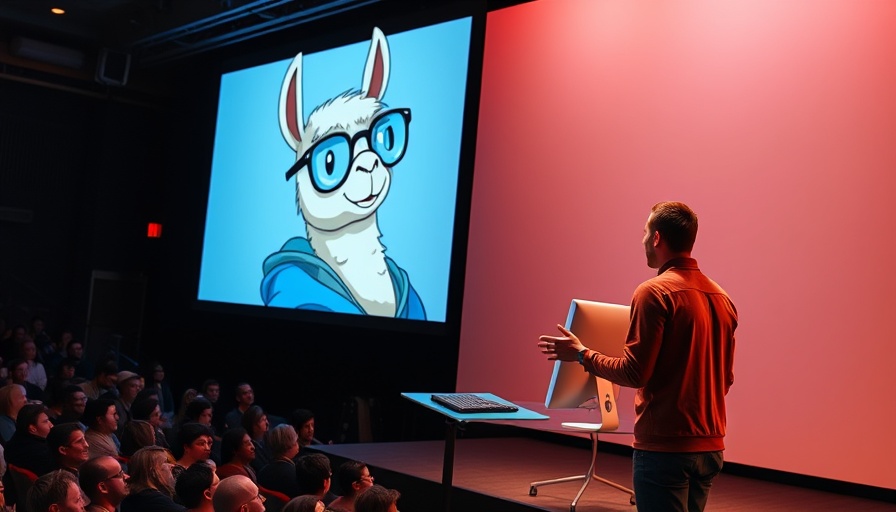
Meta's Ambition: Aiming for Open AI Supremacy
On April 29, 2025, Meta launched LlamaCon, its inaugural AI developer conference, signaling a bold move in the competitive landscape of artificial intelligence. With announcements including a consumer-focused Meta AI chatbot app aimed at rivaling ChatGPT and an accessible Llama API for developers, Meta is not just promoting its technological advancements but is also making clear its desire to undercut major player OpenAI.
Challenges to Closed AI: Meta's Strategy
Meta's approach to AI centers around a philosophy of openness, contrasting strongly with OpenAI's closed model. By providing tools for developers to access Llama models through a simple API, Meta is effectively democratizing AI accessibility. This strategy is part of a broader vision articulated by CEO Mark Zuckerberg, who has emphasized the importance of supporting a thriving open AI ecosystem.
A New Era of AI Chatbots?
One of the standout features of the new Meta AI chatbot app is its social feed, encouraging users to share their interactions and experiences. This feature mirrors trends from social media applications, where engagement and community interaction play pivotal roles. This move also positions Meta against the backdrop of emerging rumors regarding OpenAI's own social networking endeavors. With user engagement at its core, the new app could foster a competitive advantage in user acquisition.
Open Models vs. Proprietary Rivals: A Competitive Perspective
Meta’s release of the Llama API and the AI chatbot app seems to stem from a strategic desire to outpace not just OpenAI, but any closed provider of AI services. The implications of this move reflect Zuckerberg's analysis that open-source models could potentially offer more flexibility and innovation, allowing developers to incorporate the best elements of various AI systems.
Regulatory Underpinnings: The EU AI Act
Additionally, Meta's drive to promote its open Llama models may align with regulatory frameworks such as the EU AI Act, which favors companies distributing free and open-source AI systems. This dual aim—of stifling a competitor while adapting to regulatory landscapes—highlights a multifaceted approach to business strategy in technology.
Looking Ahead: Predictions for Open AI Landscape
As Meta pushes forward with its AI developments, the future appears bright for open-source models. By emphasizing open access and community collaboration, Meta could redefine the AI market. Speculatively, an increasing number of AI developers might gravitate towards open-source platforms, leading to a rich pool of innovations that, ideally, would surpass proprietary models in capabilities and applications.
Conclusion: Embracing Open AI Innovation
In summary, Meta’s LlamaCon demonstrates the tech giant's commitment to creating an open AI ecosystem. With the introduction of new tools and platforms aimed at fostering collaboration among developers, it seems clear that Meta is signaling a strategic play—not just to corner the market but to lead the charge towards an accessible AI landscape. Engaging with this evolving ecosystem offers insights into how AI could function as a collective rather than a commodified service.
 Add Row
Add Row  Add
Add 



Write A Comment